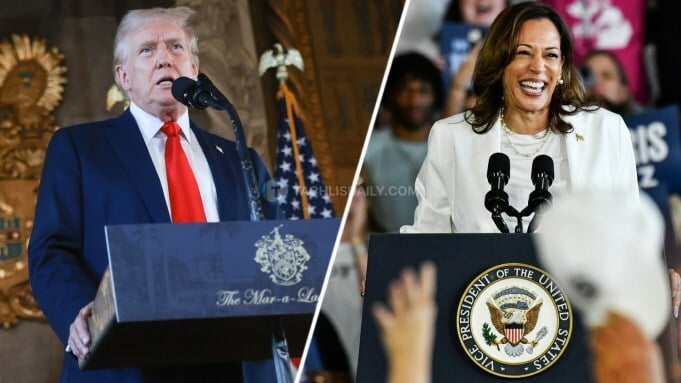Paramount Global has agreed to pay $16 million to settle a contentious lawsuit filed by President Donald Trump over a segment aired by CBS’s “60 Minutes,” ending months of tension but igniting fierce debate about corporate influence, press freedom, and political pressure.
The settlement stems from a dispute over the editing of an interview with Vice President Kamala Harris aired during the 2024 campaign season. Trump alleged that the editing misrepresented Harris’s statements on U.S. policy in Gaza to benefit the Democratic ticket, accusing CBS of “election interference” and demanding up to $20 billion in damages. Legal experts, however, widely dismissed the case as meritless and dangerous to First Amendment protections.
Despite those assessments, Paramount opted to settle — a move that has sparked outrage within CBS News and across journalism circles. The $16 million payment, which will be directed to Trump’s future presidential library rather than to him personally, includes legal fees and other costs but contains no admission of wrongdoing or apology.
A CBS News staffer, speaking anonymously, called the settlement “a very sad moment” for the network and journalism at large. While some employees expressed relief at the lawsuit’s conclusion, others decried the deal as capitulation to political intimidation.
Critics argue that Paramount’s willingness to settle was tied to its ongoing attempt to merge with Skydance Media — a deal requiring federal approval, including from agencies overseen by the Trump administration. CBS owns numerous local TV stations licensed by the government, making regulatory approval pivotal and giving the sitting president potential leverage over the company.
The Writers Guild of America East condemned the settlement as “a transparent attempt to curry favor” with the administration, suggesting the lawsuit was used to pressure Paramount into favorable terms. Press advocacy groups went further, with the Freedom of the Press Foundation calling the agreement “an insult to the First Amendment” and threatening to file a shareholder lawsuit.
The settlement includes a new CBS policy: “60 Minutes” will now release full transcripts of interviews with U.S. presidential candidates after they air, barring legal or national security concerns. The policy appears to address the core of Trump’s complaint — a disputed segment involving two different Harris soundbites broadcast on separate CBS programs that confused some viewers.
Though CBS initially refused to release the full transcript, citing standard editing practices, it eventually published the material under pressure from federal regulators. The unedited footage appeared to vindicate CBS, showing routine time edits rather than partisan manipulation. Still, the media giant faced increasing scrutiny over how the lawsuit and its resolution might influence journalistic independence.
The fallout within CBS has been significant. The resignation of “60 Minutes” executive producer Bill Owens and correspondent Scott Pelley’s on-air criticism of corporate interference underscored growing internal dissatisfaction. CBS News executive Wendy McMahon also stepped down, citing “challenges” and differing visions for the network’s future.
Meanwhile, Trump’s legal team framed the settlement as a major victory. A spokesperson said the agreement “delivers another win for the American people” by holding “Fake News media” accountable. The celebratory tone stood in stark contrast to the relatively modest payout compared to the billions initially demanded.
Paramount co-CEO George Cheeks defended the decision, citing the high costs and unpredictability of prolonged litigation. He emphasized that businesses often settle to avoid reputational damage and operational disruption — though critics were quick to note that this is not a typical settlement scenario involving a sitting president and a pending merger.












